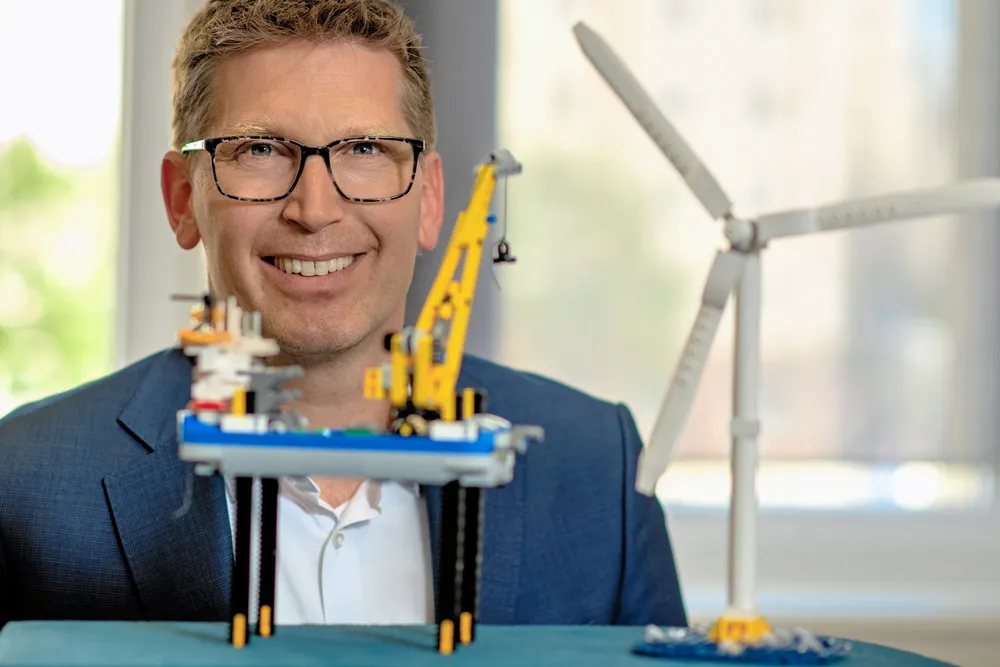'Sham debate': German offshore wind industry rejects RWE call for lower targets
Industry group BWO instead proposes more cooperation with neighbouring countries, longer operational lives of wind farms and flexible completion deadlines

Germany’s offshore wind federation (BWO) has rejected a call by RWE CEO Markus Krebber and others to lower the country’s target for wind at sea from its current 70GW by 2045 to little over 50GW.
To bring about more cost-efficiency, cooperation with neighbouring countries should be stepped up, the operation life of wind farms extended, and completion deadlines made more flexible, the group representing offshore wind operators and the wider sector proposed.
"Offshore wind is the cornerstone of a successful energy transition and industrial transformation. The current debate about targets is a sham debate,” BWO managing director Stefan Thimm said.
“Those who cut back on expansion today may save on grid expansion – but in the long run, they will have to pay significantly higher costs for energy imports and a strategic dependency.
"Offshore wind energy is subsidy-free and, moreover, is the only generation technology that contributes billions in revenue from tenders to finance the expansion of the electricity grid.”
BWO also stressed that the expansion of wind at sea is an advantage for Germany as an industry location and said that reliable and ambitious expansion targets secure jobs. The offshore wind supply chain needs clear prospects to plan and expand investments and production capacities, the group added.
"Our industry needs reliability and not debates about lowering targets that jeopardise planning and investments," Thimm said, adding that electricity will be needed for decarbonisation in the long term.
“To the extent that we cannot guarantee our own energy supply due to insufficient expansion, we become dependent on expensive hydrogen and LNG imports.
“Therefore, we must not slacken our efforts in offshore wind expansion now. It is important that we place greater emphasis on efficiency in the next legislative period."
Instead of cutting the offshore wind target, to increase cost efficiency in the industry, Germany’s incoming government under likely new Chancellor Friedrich Merz should step up its cooperation with neighbouring countries, and even count foreign capacities toward the German target if wind farms were directly linked to Germany.
This could also reduce wake effects due to a lower construction density in the German North and Baltic Sea, which is relatively limited compared to the sea areas of neighbouring countries.
“The new German government should particularly seek cooperation with Denmark. Cross-border planning can reduce shadowing effects and improve electricity yields,” Thimm said.
The new government should also allow for longer operational lives at wind farms at sea, which could also lower grid expansion costs.
And it should grant more flexible deadlines in construction to avoid an expansion peak around 2031, Thimm added.
(Copyright)